|
‘There is so much untapped potential in people it’s just incredible. It’s almost beyond belief, really. I feel it and I sense it through what I’ve experienced in my own journey. I’m from a humble beginning but the message of my story is that great things grow from small things.
'The magic lives inside every one of us, despite our environment, our struggles and our doubts. It takes courage to realise what that magic is, then to actually go out and try to achieve it. It’s the power of loving yourself, I suppose, and giving yourself a chance.’ In my years of researching the human being at the limit for In The Zone I’ve been privileged to meet over a hundred of the world’s biggest sports stars. But every now and again one of them sends me away with my head swimming. This time it is Australia’s national treasure Cathy Freeman, who has just summed up this entire book in a hundred words. The magic of elite performance is that it always starts out small: with a dream. By nurturing it, crafting it and loving it, sport’s champions show us all the untapped power of the human mind. When we believe in what we conceive, the Zone can guide any of us to achieve anything. And it’s not just about sport. More than simply a cliché, the Zone is the mental state required to perform at our own absolute limit in any field. This is the home of ‘genius’: where artists are at their most creative, where musicians produce their most sublime performances, where scientists make their breakthroughs. This doesn’t stop with the stars. Whether you’re a teacher, a chef, a nurse or an astronaut, if you’re taking an exam or cracking jokes in a pub, to find the Zone guarantees you hit your absolute best. You may not even recall how or why it went so right. Put simply, it all goes like a dream. The Zone can kick in at every level from a kickabout in the park to the World Cup Final. It is just a blissful state where all internal chatter disappears and we truly go with the flow. We assume conscious thoughts drive us on, but it is when we give our subconscious free rein to do its natural thing that we truly shine. That often leads to a performance at the maximum of our potential, albeit beyond what our conscious minds ever imagined possible. This limit rises in proportion to the hours of practice in the bank and the intensity of the occasion. Blend the Zone with supreme ability and a packed, expectant arena and you get fireworks. This book features plenty of those but the good news is that we all have enough spark to match any of them, if only we take the trouble to live the dream. ‘The great achievers, winners, inventors, musicians and painters have all been great dreamers,’ says mind coach Don MacPherson. ‘What’s exciting is that anyone can visualise. We can use it in life’s everyday challenges like school exams or a driving test. If you have to make a best man’s speech, first picture your audience in as much detail as possible, using all your senses: sight, hearing, smell, touch. See yourself delivering your speech feeling relaxed and confident. Hear the audience laughing and clapping, then coming up to congratulate you. ‘These mind movies turbo-charge your confidence because the subconscious doesn’t know the difference between the real thing and something imaginary. Like all skills, the more you practise the better you get. But your brain loves a target so give it a big one like a great success. When you have it burned into your subconscious mind, switch focus to the process by visualising how you’re going to get there, step by step.’ This book draws on the testimony of the cream of the world’s brightest dreamers and most focused schemers to show we all have a chance to be a magician. Anyone with a dream can follow these greats all the way to the top of the world by setting their mind unflinchingly on their own specific quest. How do champions think? They don’t. The original dream comes not from the head but the heart: conceive. No matter how long it takes, they don’t think they can, they know they can: believe. Finally, to truly peak they stop thinking at all: achieve. We all have this potential if we can stop suppressing it ourselves or believing others who haven’t yet learned this universal truth. When we finally pay dreams the attention they deserve, the payback is a sea change in everything from self-belief to self-discipline, self-knowledge to self-esteem. Then a realisation dawns that buried within each of us is the power to make any dream come true, even if the process may initially seem more of a nightmare… This extract is from In The Zone: How Champions Think and Win Big, out now
0 Comments
The Olympics start tomorrow and elite athletes all over the world are dreaming big. For five long years they have dedicated their entire existence to Tokyo, regularly picturing the view as their national anthem sings out to a packed arena.
This is the justification for decades of focus on a single target: every early morning, every mile run through wind, hail and snow, every vomit-inducing gym session. All the pain will make sense when they reach the top of the world. Right? Pity few enjoy this golden pay-off. The rest will fail – very publicly – in full view of their family, friends, nation and planet. That is guaranteed to hurt more than anything they’ve ever felt before. “To fail to make a goal is one thing. To do it in front of two billion people is another. It’s heart-wrenching. When you work so hard and sacrifice so much… I literally felt my soul was being shattered.” These are the words of Missy Franklin: the darling of the Aquatics Centre at the 2012 London Olympics, this ever-smiling 17-year-old American swam to four gold medals and charmed fans with her happy-go-lucky personality. Cut to Rio in 2016 and it was a different story: she failed to reach the final of either of her individual events. Ouch. When I meet Franklin years later the humiliation remains etched in her mind. “Throughout my life everything made sense to me: you work really hard, you make the sacrifices, you do everything you can, then you get faster and achieve your goals,” says Franklin. “That’s why Rio made no sense. I was in my best shape ever, I had my best trainer… and I had the most disappointing meet of my life. “How does that work? It showed me the importance of mentality. Physically I might have been incredibly healthy, but mentally and emotionally I was in terrible health. That makes a huge difference. At 17 I was new; I didn’t have expectations. But now people knew what I did, and I started listening to their expectations. That was so hard, because before the Games started I felt I’d already failed. Even if I took home three gold medals it still wouldn’t be good enough: ‘Oh well, you got four in London…’ “I always swim my best when I’m enjoying myself, but that took all the fun away. I felt so heavy going in; so much pressure. They were the most miserable eight days of my life. It broke my heart to feel like that, because I was at my second Olympics and I wanted to enjoy every bit of the experience. But I’d rather have been anywhere else.” Of course Franklin was not alone. The full scale of the mental health epidemic facing sport has only become apparent in recent years, as athletes come out with stories they may once have kept hidden. It’s not even limited to ‘losers’; the greats have their own demons to face, both before and after any fleeting euphoric high. Franklin didn’t leave Rio empty-handed either, but she returned home with ‘only’ one gold medal – earned for helping her relay team through the heats; she wasn’t entrusted with a place for the final. This would be most people’s pride and joy but it serves only as a reminder of the week Missy’s world fell apart. She used to smile routinely before every race – partly to generate the positive attitude essential to performance, partly to remind herself ‘fun’ was key to everything she did. Now the smiles dried up. The gloom was briefly lifted when she arrived home to find a sea of paper hearts on her front yard. They were covered in messages from local kids saying why Missy was their role model and why they still loved her. She began ‘hysterically sobbing’ out of gratitude to the people who stayed by her side. But it would not be the last time tears flowed as the magnitude of her failure hit home. “The low went on for a while as I dealt with the confusion and pain,” admits Franklin. “I was so humbled by the whole experience, and it takes a long, long time. After that I went through bilateral shoulder surgery so I had to take time away from the water. I’d always been good at swimming, and it always worked out well, so it was easy to say: ‘My identity isn’t based in this.’ Now, for the first time, swimming was taken away – and I realised how much of my self-worth I put into the sport. “When it doesn’t work out, how does that change your view of yourself? I had to take time to sit down with different people and work through: ‘Who am I? What do I value about myself?’ That was unrelated to what I did in the pool, but it takes a long time to grasp that. Now my relationship with swimming will never be the same. So it’s about accepting that; and that non-judgmental attitude towards myself is the most important thing I’ve been working on.” It’s easy to see how an Olympian’s self-image can become so intertwined with what they achieve. Elite athletes live in a bubble where everything is measured, from every training session to every final. That’s fine when things are going swimmingly. When they’re not, self-esteem can sink as fast as their results. Sometimes it takes time away – enforced or otherwise – to regain any perspective. In Franklin’s case her background studying psychology at the University of California gave her some backup. But there is no more brutally effective teacher than life itself. We all find this out at some point, but few of us honestly know how to treat triumph and disaster just the same. That’s why we look to learn from anyone who has already endured hardship and come out stronger on the other side. This is where Missy Franklin has found her silver lining. “My faith is important and one thing that stuck with me for the entire journey was that with God your pain has a purpose,” smiles Franklin. “There are times when you think: ‘This will never be worth it. Why am I having to deal with this? Will I ever get out?’ But everything I went through was moulding me into the woman I was supposed to become. It’s crazy to see how this has changed me. I’m a totally different person to what I was eight, four or two years ago; I’ve learned so much and I feel so strong. “I now realise one of the main reasons we go through what we do is so we can help other people. Now I can talk to friends, athletes or strangers experiencing something similar, and share how I got through it. To see their gratitude and appreciation makes everything worth it.” Still just 26 years old, Franklin made her official retirement from swimming late in 2018. She has since married fellow swimmer Hayes Johnson (and is now known as Missy Franklin Johnson) with their first child due next month. She is as bubbly as ever – but armed with uncommon wisdom for one so young. As such she can expect a full inbox over the coming weeks as her fellow ‘failures’ make their own tearful return from Japan. But why stop there? Let’s face it: we all fail. Often. And it hurts every time. Indeed this modern life of screens has taken things to a new level. It means we can all ingest a daily overdose of apparent ‘good times’ not just courtesy of the rich and famous, but our own friends and family. That’s all we ever show in public too, but Franklin knows it’s when things are falling apart that we really need help. “The main thing I can do is be open about my failures,” she adds. “As elite athletes we feel we have to be composed, confident and tough all the time; especially with social media, people only post the best aspects of their lives. People go on and think: ‘My life isn’t anything like that.’ But nobody’s life is like that. You’re only seeing the good, and nobody’s life is only the good. “We have to recognise it’s not real. If we want to follow an athlete or celebrity, fine, but it’s crucial to realise their lives are not exciting and wonderful all the time. This feeling that we have to constantly compare ourselves is dangerous. Comparison and judgement are two of the most harmful practices a human can do, yet it’s what social media is all about. And what we see can often be so skewed and wrong. It’s OK to be exactly who we are and not this ideal self we post to everyone else. “When we are vulnerable and share the hard times; the bad, the shame, guilt, anxiety and depression, that’s when we impact people. Lots of athletes say to me: ‘I had no idea you experienced anxiety attacks before you raced. I have anxiety attacks, but I can’t believe YOU had them!’ That’s what they can relate to, and where they really need help. We don’t need to help someone get through a good time, right?” We all start life as dreamers. Whether we picture our future selves as footballers, film stars or astronauts, we have a natural, effortless ability to transport ourselves into any reality we choose. Then we grow up – and most of us give up. That’s not entirely our fault. Parents and teachers usually mean well but rarely grasp the power their words have. The world’s most effective dream destroyer is the phrase: ‘You’ll never earn a living doing that…’ Ian Cartabiano is one of the lucky few who slipped through the net. The son of a toy designer father and an artist mother, he once saw his Dad draw a Ferrari Testarossa and promptly started doodling cars for himself – until, aged 12, he knew this was what he wanted to do. Forever. Thirty years later Cartabiano is still living the dream, having designed many of Toyota and Lexus’s most striking cars of recent years. And I was lucky to speak to him about his creative process, his moments in the Zone and more. Read the full article here. As part of this interview series, which will continue over the coming months, I also enjoyed having a chat with Lexus sportscar ace Jack Hawksworth (pictured above). He described the work he puts in on visualisation and other techniques to make sure he finds the Zone every time he gets behind the wheel. Read the full article here.
This will be old news to many of you but I just wanted to give a shout-out to Simon Mundie's outstanding BBC Radio 4 show and podcast Don't Tell Me The Score.
This is an incredible resource, full of insightful interviews with the greats of sport about what they do and how they do it. There is such a range of material that it's hard to pick out favourites, but two episodes have particularly stood out in recent weeks. Multiple major golf winner Nick Faldo's insights into his mental approach make for a masterclass, particularly regarding how he used visualisation to reach the top of the world. Then there is a fascinating interview with legendary Formula 1 journalist Maurice Hamilton about his unlikely arrival in the sport. His story is amazing in itself, and beautifully told, but it also makes for a compelling case for how anyone can live their dreams - as long as they refuse to give up regardless of the odds. Maurice talks about the early mentoring he received from New Zealand journalist Eoin Young. I can vouch for the fact that he has passed his wisdom and kindness forward to many younger writers, as one of the many who owe him a huge debt of gratitude. I still remember picking up a copy of the Observer ten years ago to see this very generous review of Overdrive - which was entirely unprompted, came as a complete surprise and mercifully ensured my venture into self-publishing didn't sink without trace. If you have a challenge of your own and you want to find out how to make it happen, I heartily recommend checking out this podcast. Then you can start work on the entire Don't Tell Me The Score back catalogue, which features everyone from Jonny Wilkinson to Caitlyn Jenner to Wim Hof... It is always a joy to be contacted by people via this website, and recently I was delighted to hear from 18-year-old Canadian climber Madison Fischer (pictured in action above).
Hailing from Ontario, Fischer was introduced to climbing at her local gym at the age of 11. She was soon hooked, winning the Youth Nationals within three years and now representing Canada in Open competitions all over the world. Climbing isn't Fischer's only speciality, however. She is also a keen student of everything to do with the sporting mind, and she has already written an impressive series of thought-provoking posts on her website. Her blog features insights into everything from what it takes to be a champion to body image to the considerable benefits of giving up social media - and it comes highly recommended. One of her latest articles compares the chances of making it to the top in sport to the odds of winning the race to be selected as an astronaut. Is it realistic? No. Is it worth going for it? Of course. But the only way to pull it off is to ignore all the doubters - many of them well-meaning family and friends - along the way. This is what success is really about in any field, and Fischer rightly concludes that the highest echelons are populated by what she beautifully terms this 'ignorant few' who are able to cast a blind eye to all logic and good sense... simply in order to chase their dreams. Something tells me Madison Fischer is well on her way to joining them. American psychologist Abraham Maslow spent his life exploring what makes us human beings tick. His quest is most famous for his ‘hierarchy of needs’, a simple diagram of a pyramid (see above) that categorises our every requirement and craving in order of importance.
The bottom layer features raw essentials including food, water, sleep and sex – all of which apply to every animal on the planet. The next level is ‘safety’: health, employment, shelter and general resources. Then comes ‘love and belonging’ such as family and friends. Only once those basics are in place can we start to exploit the areas that set humans apart, notably ‘self-esteem’, plus achievements and respect for and by others. Rising even higher we can explore the aesthetics of our environment, stimulating ourselves intellectually and fulfilling our need for harmony, order and beauty. The top of the pyramid is reserved for ‘self-actualisation’, where we ditch all prejudice and find morality, creativity, spontaneity plus an ability to solve problems. This is where humans achieve our full potential and chase our dreams, life becomes playful yet honest, individual yet integrated, honourable yet effortless, rich yet simple. This summit is where we are most likely to find ‘peak experiences’, those profound moments of love, happiness or insight where we feel most alive and connected with the universe. This is as good as it gets. The Zone. Given that we have to build up a solid foundation of all the other layers first, it’s no surprise that the Zone is so hard to reach and most experiences are so fleeting. Much of the world’s population is stuck in a daily battle for the essentials for survival. It is possible to peak in such circumstances, but it’s at the level of an animal. Maslow was adamant it shouldn’t be like this. The top should be the norm not the exception: not about having something ‘extra’, rather having nothing taken away. He reckoned our ultimate goal is to attain personal growth; indeed this very process is the path to true happiness. Yet to reach these higher peaks, he understood certain conditions must be in place, such as the freedom to seek new knowledge and to express ourselves without constraint. That rules out dictatorships and other subtler forms of oppression. Over the past three months billions more of us have been dragged back down the pyramid to level two: safety. Last month’s blog details the futility of this endeavour, yet the world’s media and governments continue to insist this is a rational way to live our lives. Still convinced they’re right? If so are you prepared to give up everything it really means to be a human being? Something tells me it's time to rise back up... The world is drowning in fear right now.
Whether we are most afraid of a virus or the draconian global response to it, there is plenty to be scared of – and, thanks to relentless fearmongering everywhere we look, no escape. Hell, we’re not even allowed out. While we wait for some unspecified knight in shining armour to set us free, it’s pretty clear that we are supposed to be sitting here quaking in our boots. This is the message reinforced with every new statistic, every news broadcast: be afraid, be very afraid. But there is a critical life lesson nobody ever told us in school, one they aren’t telling us now either… What we fear, we attract. That’s because our thoughts have power. This is the principle underlying everything I’ve ever written about visualisation. Elite athletes have been using the positive side of this for 50 years. But it works both ways, good and bad. When we worry about anything – whether it’s running out of money or getting ill – we massively increase the chances that it will happen to us. Worse yet we have the ability to infect others – loved ones, friends, neighbours – with our fear, ensnaring them in our nightmare. And we don’t need to be within two metres of anyone to pass it on: we can do it over the phone, through Skype, Zoom, Whatsapp, Twitter, Facebook, Instagram, radio, TV, anything. As such it’s no wonder this fear has gone viral far quicker than any illness. Within the space of two weeks we have accepted being ordered to stay away from our fellow human beings lest we infect them, to the point that a high five is now an unthinkable act, let alone a hug. This is how we have been persuaded that in order to preserve life for some, the best response is to stop life altogether. For everyone. Now that really is a tragedy. There’s a reason why incarceration is a punishment – and why solitary confinement is the most brutal of all. Yet that is precisely what we have just inflicted on some of our most vulnerable people, not least the elderly who this is all supposed to be protecting. Then there are the millions who have suddenly been left without jobs or income, with all backup rapidly disappearing. But even on a less desperate, more trivial level we are all being robbed of life – and everything that makes it meaningful. Within sport alone we’ve seen the dreams of a planet of Olympic hopefuls evaporate, along with everyone else who has dedicated decades of their lives towards a big event in 2020. It’s not just the competitors; half the population of Liverpool have waited 30 years for a title their team richly deserves but is now irreversibly tainted. No doubt that’s funny to many, and Bill Shankly’s view of the relative importance of football, life and death may indeed be flawed. But what of the millions of needy kids all over the world for whom football (or basketball or skateboarding or boxing) was their only highlight amid the daily gloom? They really have lost their lifeline. Make no mistake: dreams matter. Whatever we do in life, we all have dreams – from wanting to be a pop star to starting our own business to taking the family on holiday – but we are currently watching helplessly as they are sucked into this vortex of fear. Individual fear is damaging but collective fear is catastrophic, dragging everyone in. Finally along comes institutionalised fear, which is a one-way street to dystopia. And this month’s events sadly show it can happen in the blink of an eye. Snooping on our neighbours? Seriously? So it’s time to change the record. Mercifully it’s not (quite) too late. But no, there is no knight on the way to rescue us. We can only do this for ourselves, and it starts with ditching ALL the fear and dreaming as big – and as free – as we possibly can. To illustrate let’s go back half a century. At the 1968 Mexico Olympics British 400m hurdler David Hemery went into the final with only the seventh fastest time. Yet he somehow had an unshakable belief in his head that he would break the world record. That’s exactly what he did, taking gold by almost a full second. It was only when Hemery headed to Munich four years later – this time as the clear favourite – that he discovered the full power the mind has to dictate events. Ahead of his race he just couldn’t shake an image of blasting off at world record pace for 300m before running out of energy on the final straight. Yes, that’s precisely what happened. By filling his mind with negative imagery he now reckons he pre-programmed the outcome. And most of us are doing just that all day long. ‘We have the power to affect our own futures almost entirely,’ insists Hemery. ‘With our mental focus we get what we expect to get. The mind is key; the mind is our gift. It’s like a self-fulfilling prophecy. ‘People say, “Oh well, it’s luck.” But to a certain extent we make our own luck. If we visualise and rehearse the best we can do and prepare for that, we’re more likely to have it happen. It doesn’t mean living in a fool’s paradise, it just means: “What is the best I can do under this circumstance?” If you prepare for the worst it’s more likely to happen. If we dwell on the negative or on sickness, that’s probably what we’ll get. ‘It was Virgil who said: “They can if they think they can.” It’s absolutely true. We prove ourselves right. If you think you can’t then you will prove yourself right too.’ Think you can? I know you can. To help, here’s how another one-lap legend did it… Whatever future you dream of – whether it’s for yourself, your kids or your grandkids – it’s time to picture it. Get your loved ones to do the same. It can be anything, but the bigger the better. If nothing comes to mind right now, how about peace and freedom? Dream of it first thing every morning, dream of it last thing at night. It need only take a minute, but it sets the universe in motion on your behalf, and ours. Together we can dream this whole nightmare into submission. Only by dreaming can we wake up. South Africa’s victory at the 2019 Rugby World Cup is one of those occasions when sport’s script really does seem written by higher forces. Led by inspirational captain Siya Kolisi, the Springboks arrived in Japan on the back of a rough few years – in rugby terms. But they had a secret strength that bonded them together: playing to unite a nation that had endured a rough few decades. The speeches coach Rassie Erasmus gave in the build-up to the final against England sum up this approach. What is pressure? It’s not having a job, or not knowing where the next meal is coming from. Rugby pales into insignificance by comparison. Those were the people this team was playing for – and it led to a unity rare in sport. At this month’s Laureus World Sports Awards in Berlin, where the Springboks earned the Team of the Year award, it was a huge privilege to quiz Kolisi about how his team generated such collective belief ahead of the biggest day of their lives. ‘We had a coach who believed in us,’ Kolisi told me. ‘Coach Rassie knew what we wanted to achieve, as did all the management, the physios, everyone. All we had to do was work as hard we could to make sure we played the best game on Saturday. We watched tapes every day so we saw every player on the opposition and knew how they played. Doing that over and over again makes you start believing in yourself. Then you don’t have to worry about anything… By Thursday you’re already psyching yourself up mentally – because we’d prepared throughout the whole week. That gave us a lot of confidence, so we went into the game without fear. We just wanted to focus on doing our best.’ The result was one of the most dominant ever World Cup Final performances. Indeed such was the physicality of the first 15 minutes that scrum-half Faf de Klerk recalls feeling such ‘intensity’ from the team – even when things weren’t going right – that he was already convinced they could pull it off. Did it feel written? Not quite. Kolisi offered me the gentle reminder that: ‘We still had to play’. But by midway through the second half they were running riot. If you want a good laugh, check out Francois Louw’s answer to my press conference question about how that really felt on the pitch in the YouTube video below. Then gain some perspective from Schalk Brits on what the eventual result meant to the nation of South Africa… To celebrate today's publication of the paperback version of In The Zone in the USA, here is an exclusive extract from the book featuring my interview with Robby Naish, windsurfing and kitesurfing's most famous son - and its greatest ever competitor...
Few fields have the lines between success and failure marked out as clearly as sport. It may be hard to treat these two imposters just the same (as Rudyard Kipling suggests) but regardless of any outer glory or defeat that comes our way, the trick is to trump it with the pure passion for doing what we love. In 1976, a thirteen-year-old Robby Naish won the world windsurfing championship. The American was still winning titles decades later, before switching to kiteboarding in the Nineties and dominating that too. For those who battle waves and wind Naish is a legend. But to him it’s not about glory. The key to retaining the motivation to scale peak after peak is very human. You can set up home at the top of your field only if there is nothing on Earth you would rather be doing. ‘A lot of athletes are goal-oriented: they reach their goal, then they’re ready to move on to something else in their lives,’ Naish tells me. ‘I was never goal-oriented, it was the experience that I always loved. I was never trying to achieve any single thing. I didn’t want to become world champion then go and become a chef or take up golf. I realised this was what I wanted to do more than anything, and for as long as possible. It’s about the process and the enjoyment of everything that goes with it. ‘I’m lucky that my sport puts me in this pretty pleasant environment – but not always. Our events can be in miserable places like the North Sea when it’s bitter cold. But it’s taking that and enjoying it for what it is. I did that better than a lot of athletes. They’d be standing on the beach miserable and I’d just think: “Give it to me!” I loved being there. I’ve always been really appreciative that someone was actually paying me to do this so I’ve been able to make a living. That realisation helped me continue to push myself to stay in the Zone for all those years. It’s still going: people still pay me to go surfing. I’m not competing any more but in my eyes I’m still a professional athlete. I realise the whole life of being a sportsman is profoundly lucky.’ Before we start painting any picture of Naish as a happy-go-lucky type just out for a good time, there are familiar factors leading to his ability to maintain the heights. He started with a childhood of practice in the sunny Hawaiian surf, before an adulthood of total commitment. ‘In our sport the build-up to competitions starts before you get to the beach,’ says Naish. ‘You have a lot of equipment so you get your gear together and drive to the beach, then there’s the lead-up to a race. Throughout my career I was always the kind of guy who would go to bed early to prepare. Then I’d want to be at the beach before everyone else so when they showed up they’d see me and think: “Oh no, he’s already here.” All those elements helped me know I was ready mentally, physically and equipment-wise – and that I’d done everything better than everybody else. ‘I was lucky that personality-wise I was drawn that way. I hated losing so badly that I wanted to do everything possible to make sure I didn’t lose. It wasn’t so much the thrill of winning, it was doing everything I could to avoid that feeling of losing. For me competition was everything. It was mind, body, spirit, 100 percent focused. The enjoyment of that feeling was worth sacrificing any other things in life. Whether it was partying with my friends or whatever, it was no issue to sacrifice that to be as prepared as I could possibly be for competition.’ Naish sure doesn’t sound like your archetypal chilled-out surfer dude. But the Zone is so special it is worth any such sacrifice. Moreover if you find yourself facing anyone who finds this magical state, that would be a good time to start scrabbling for ‘luck’. While Naish similarly demoralised his opposition, that wasn’t the main point behind his painstaking work ethic before his events. The biggest effect was that it combined to put him into the right mental state to compete, turning Naish into one of the elite who found a way to access the Zone at will. ‘Different athletes have different ways to put themselves into that Zone: little rituals they need to bring them to that point,’ says Naish. ‘I never figured that out as I didn’t have to count crows to put my mind into that space. It would come naturally. But I’ve always been really nervous, internalising it, to the point that knowing I was nervous meant I really wanted it. If it is comfortable and natural, someone who wants it more will beat you. If I was lackadaisical it would be time to do something else. ‘So I never had to think about it – until the times I wasn’t there and I’d realise what it feels like not to be in the Zone. Fortunately it didn’t happen often: through my entire career I was there 99 percent of the time. But it was profoundly obvious when I wasn’t. When it didn’t come together you’d sit there knowing you weren’t quite there. You’d never figure out what happened or why. Occasionally you could click yourself back into the right state but when you couldn’t, you’d have a bad day. ‘Part of being in the Zone for an athlete is being able to put all your baggage aside. Whatever is going on in your life that morning, yesterday or last week, or that injury that is nagging you, you have to put it completely out of your mind. It’s about cutting everything else out so you can focus 100 percent on the job in that second – or the eight minutes of the heat or the half-hour, whatever the contest is. Everything else in the world disappears for that moment in time...’ This is an extract from In The Zone: How Champions Think and Win Big - out now in paperback... |
AuthorClyde Brolin spent over a decade working in F1 before moving on to the wider world of sport - all in a bid to discover the untapped power of the human mind. Archives
October 2024
Categories
All
|






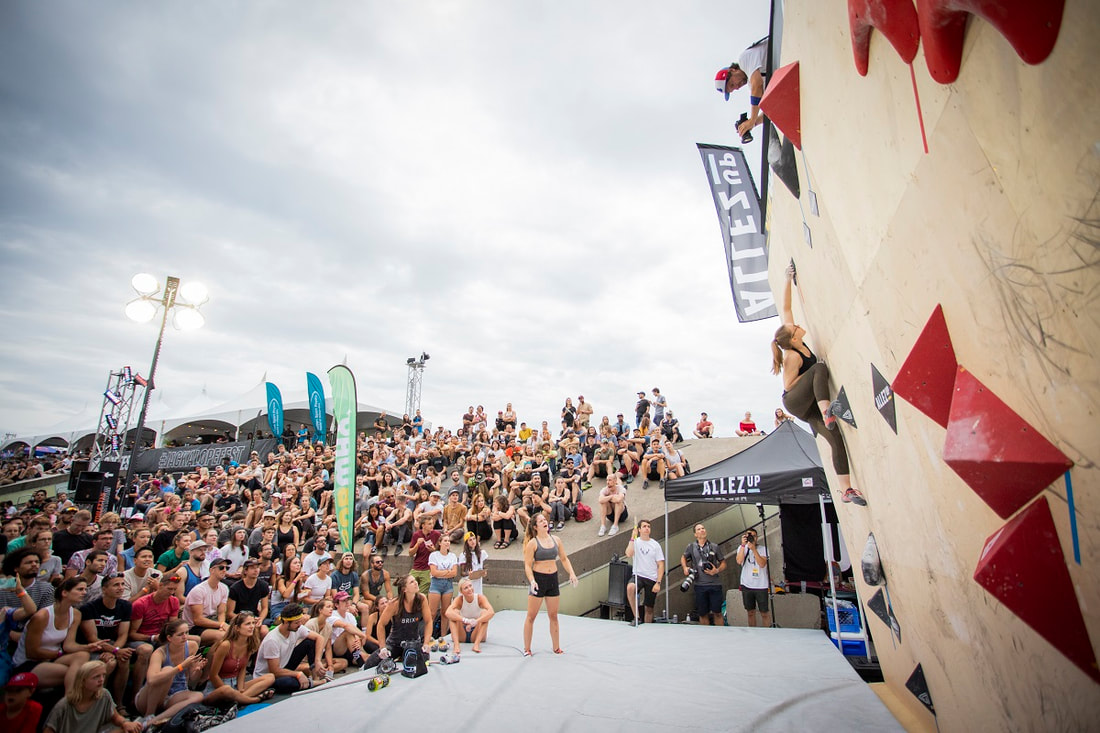
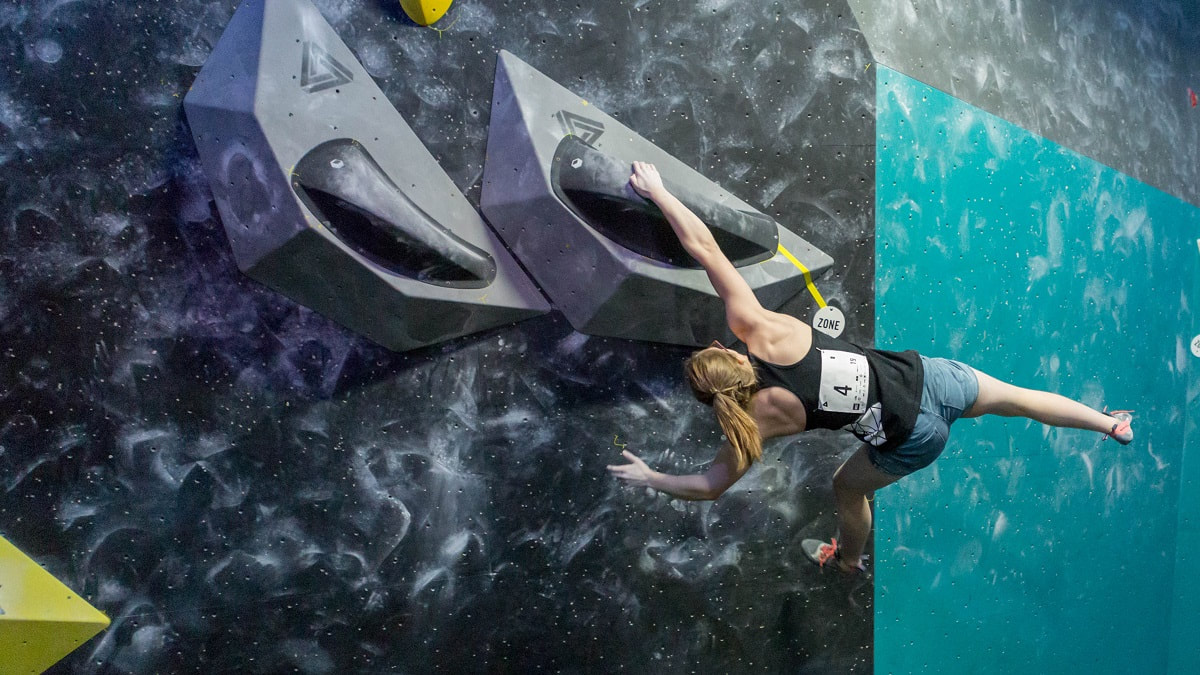
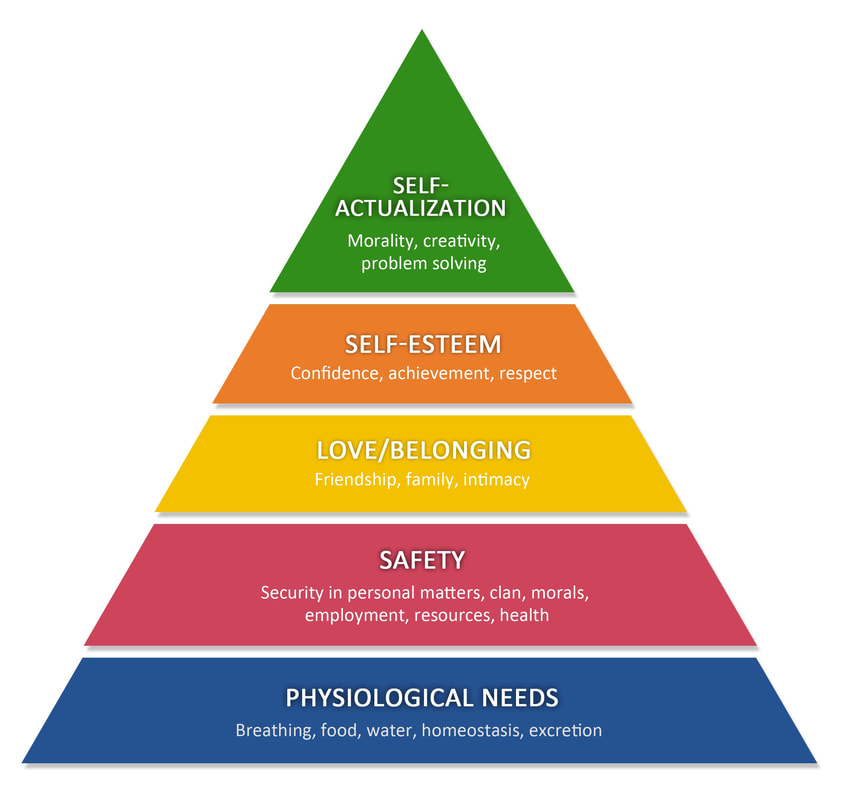
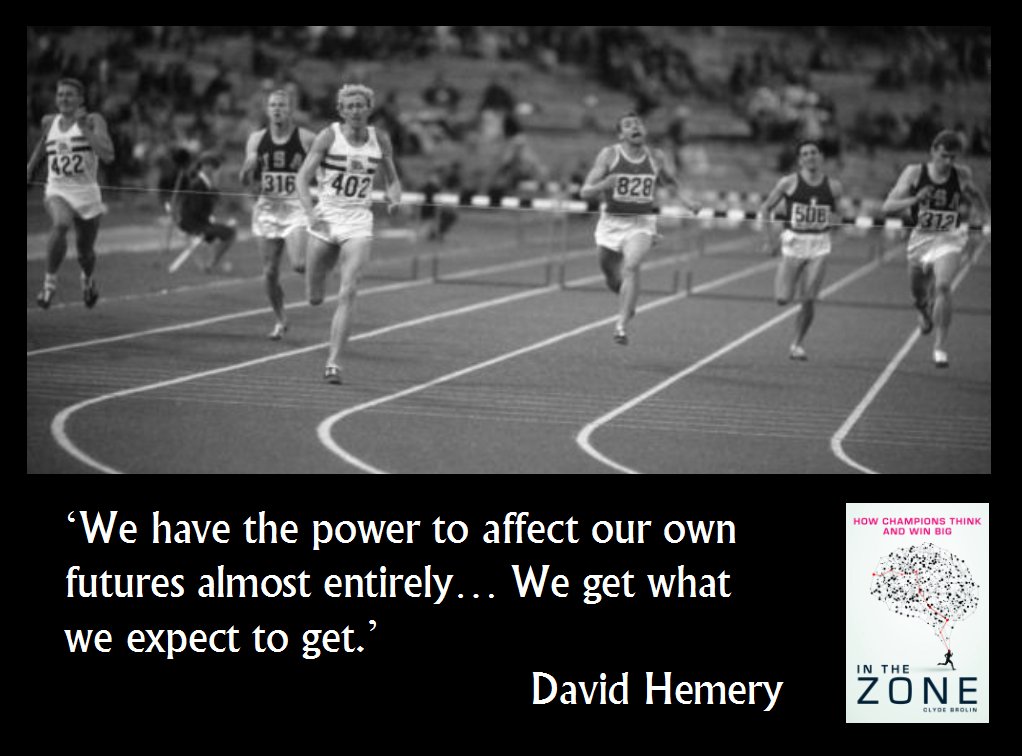

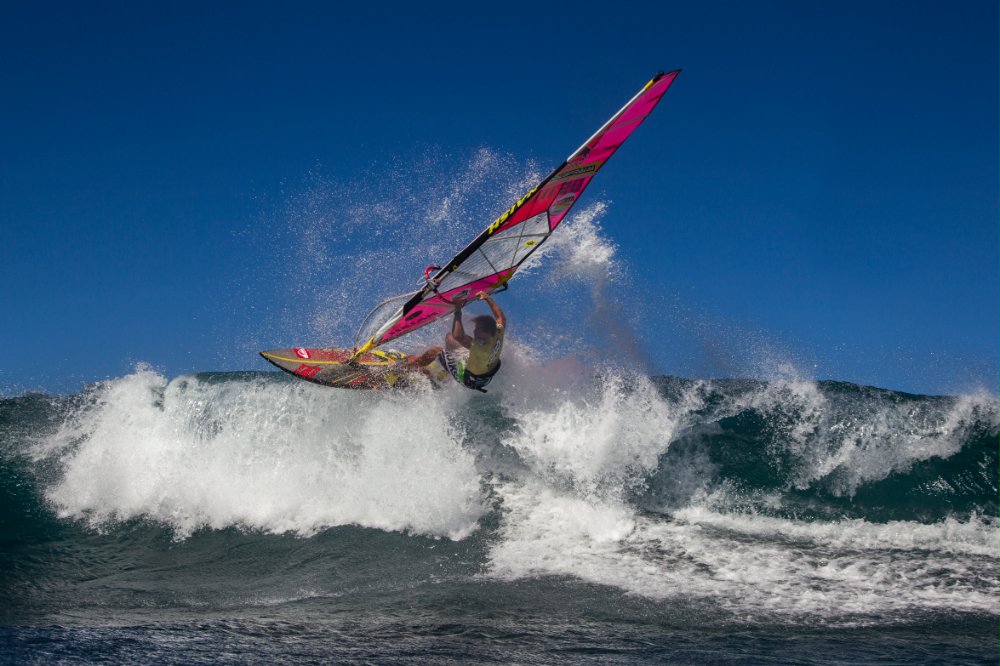
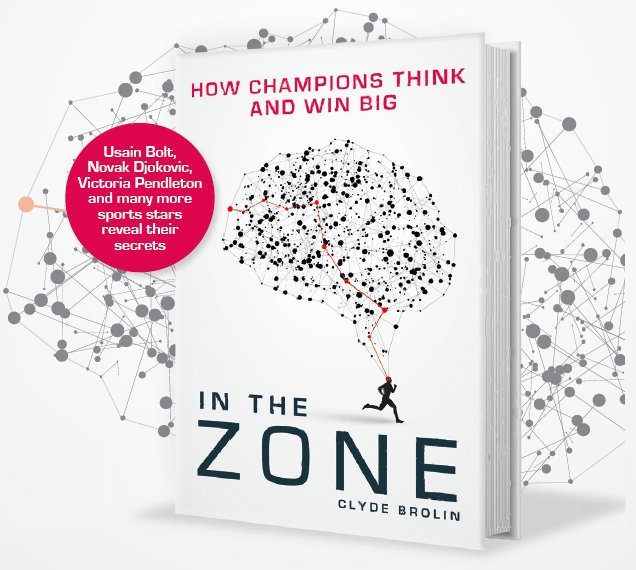
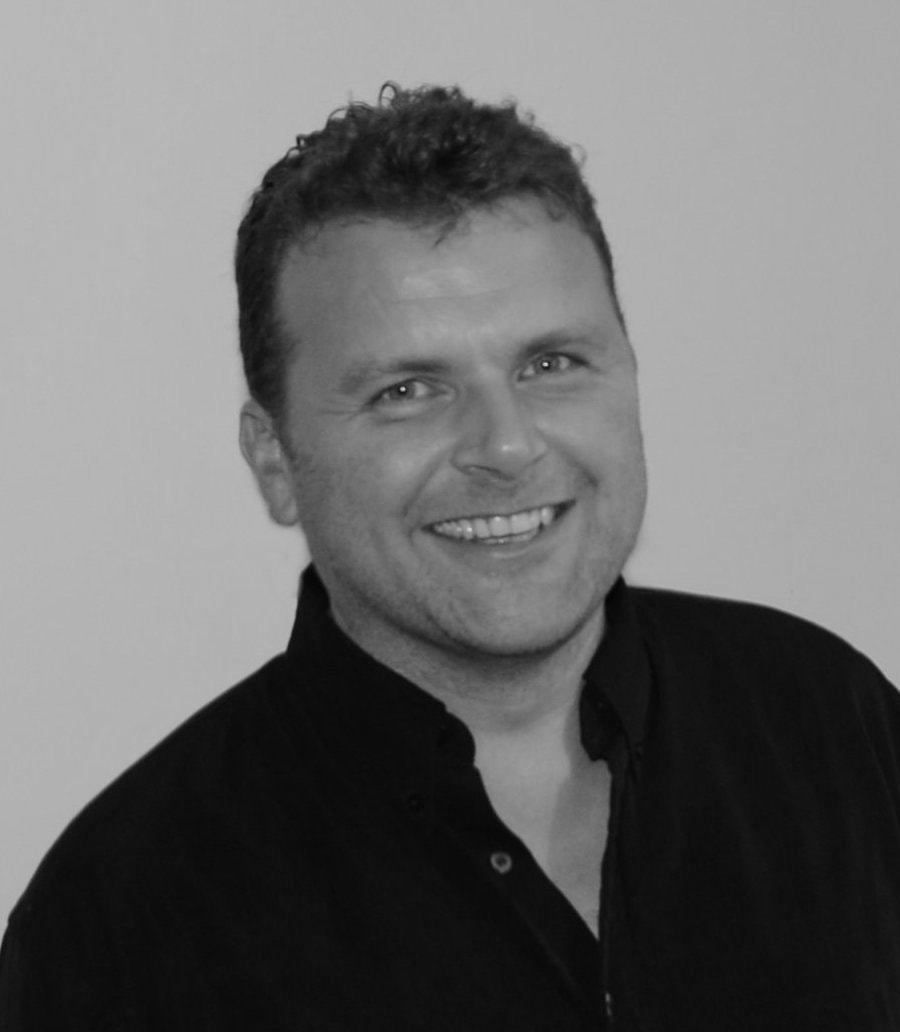
 RSS Feed
RSS Feed

